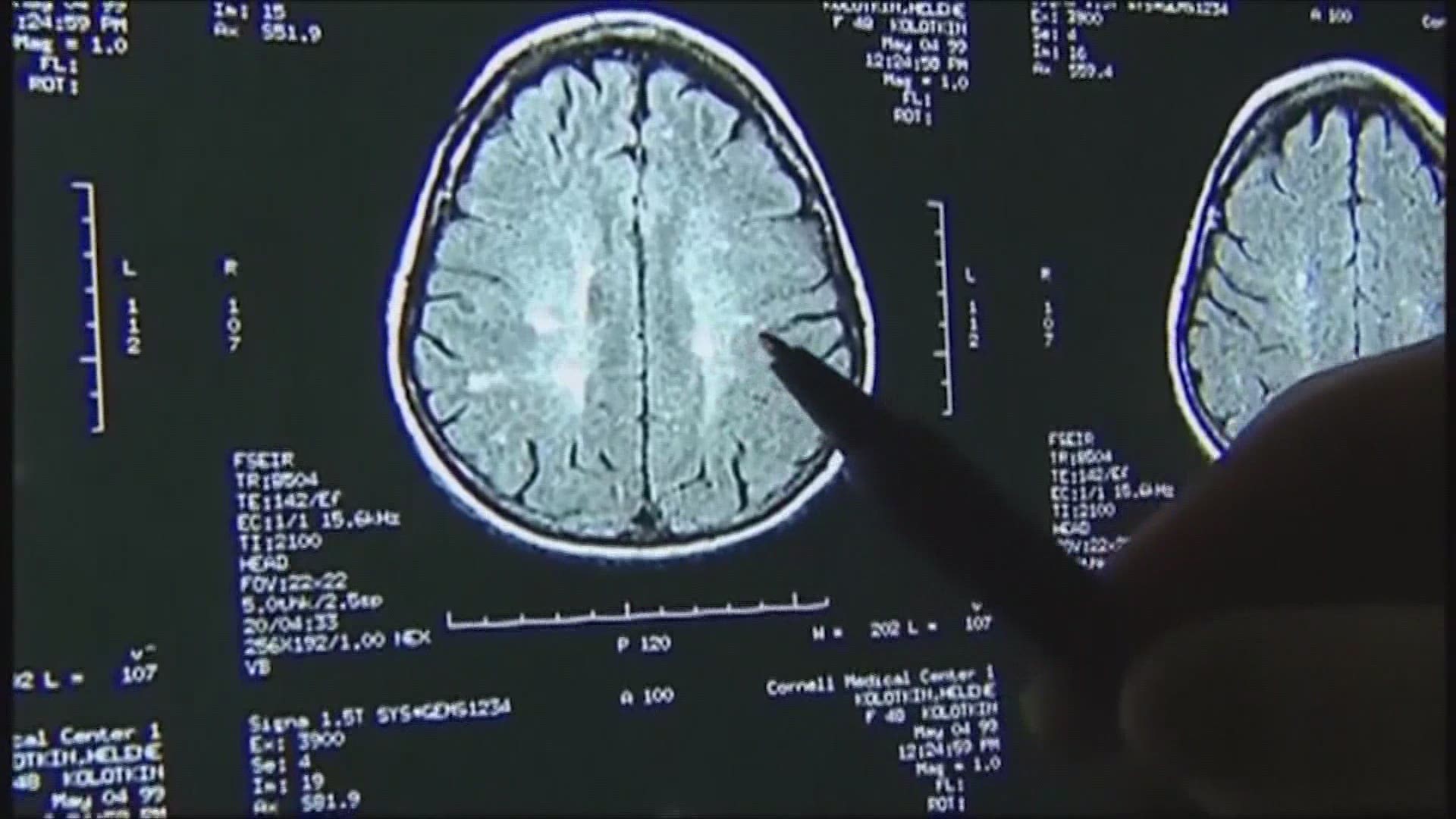A new study of brain scans before and after COVID has found evidence of brain damage even in mild cases.
Craig Hlavaty has experienced what brain fog is like firsthand after being infected with COVID-19 in December. Physically, the 38-year-old says he recovered quickly. His brain is a different story.
“The first few weeks after I had COVID, I remember being really angry with myself, because I couldn’t just finish a sentence. I would just trail off. I couldn’t remember what a chair is called,” said Hlavaty.
That forgetfulness has been around ever since.
Dr. Louise McCullough treats patients with neurological long-hauler symptoms at the UT Physicians Post-COVID-19 clinic.
“We’re following about 700 patients here at McGovern. We’ve looked and found dramatic increases in brain injury markers in the blood of people with COVID,” said Dr. McCullough, MD, PhD, chair of Neurology at UTHealth.
An alarming study done in the UK has found something similar.
Researchers had brain scans from over 700 patients, which were done before the pandemic. They did second MRI’s around three years after the first scan. 394 patients between 59 and 63 years old got the virus between the two scan. Those who recovered from COVID-19 had more brain atrophy or shrinkage in parts of the brain that control taste, smell, and memory. Most of those COVID cases were mild.
“Is it going to increase Alzheimer’s rates, dementia rates – even in people who are only mildly affected? This is something that could be a major public health crisis 20 years from now,” said Dr. McCullough “The next step is seeing, do the patients who have the worst brain shrinkage or volume loss have the worse memory?”
Dr. McCullough says this kind of brain damage is typically permanent. She feels it’s critical more research is done on this long-hauler symptom. If doctors can figure out why COVID-19 is causing chronic effects on the brain, hopefully they can find ways to help.
“Long haul is a good word for it. It’s a long haul. It makes me feel good and bad that we have some science behind it,” said Hlavaty. “I wish people could know to be patient with us. I want more people to not be fearful of it, not feel ashamed or embarrassed. There are also people struggling for words, also people out there struggling to finish puzzles after COVID. You’re not alone.”
Source: Study indicates COVID-19 causes brain damage, even in mild cases













